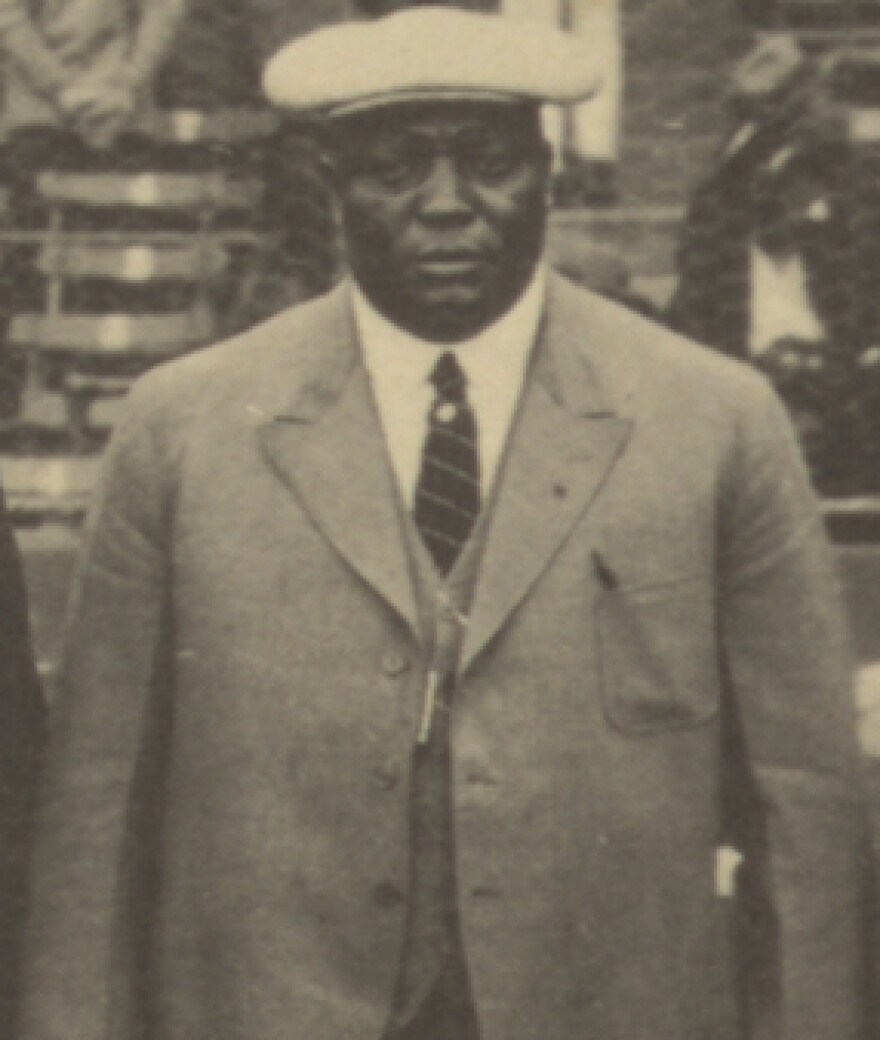A forumthis weekend wants to celebrate the athletic prowess and talent of Black Professional Baseball in Texas. The league had teams all over San Antonio: The Bombers, The Black Sox, The Black Missions were just a few of a thriving league that was rarely covered by established white newspapers, something that at times hampered Institute of Texan Cultures researcher Greg Garrett's work on area teams.
"Anybody whose done minority baseball research has come across that problem. I ran across it when when I was doing research into the Spanish American leagues," he says "I also ran across it even to a larger extent with the African American community. The papers just didn't really cover them."
Texas has a special connection to the Negro National League of baseball. In addition to turning out scores of great players, two players would go on to construct the foundation and the talent pipeline for Black Professional Baseball, Biz Mackie and Rube Foster.

Andrew 'Rube' Foster from Calvert, Texas, was an ace pitcher who dominated local leagues in the late 1800s. He would go on to Chicago to found, manage and play for the Chicago American Giants. He is credited with creating the National Negro League. In 1981, he was inducted into the National Baseball hall of fame.

James Raleigh 'Biz' Mackiewas born in Eagle Pass and began his baseball career in Luling Texas. He would go on to become the dominate catcher in the National Negro League through the 20s and 30s. Another player posthumously inducted in 2006 to the National Baseball Hall of Fame, Mackie spent the latter part of his life as a forklift operator. Some players he mentored would go on to big-league fame.
Despite the color barrier officially coming down in 1947 with Jackie Robinson, racism persisted in the game for many years and the Negro League continued throughout the 60s and 70s. And the racism - still present -did prevent players from making a career of the sport.
"There were quite a few ball players -if they had proper opportunity to play, and if there wasn't the racism - they would been able to play major league baseball," says Laurence Johnson who played locally for the Black Socks and the San Antonio Bombers in the eastside league.
Johnson and other players will be on hand this weekend for the ITC's forum "Invisible Diamonds."
The ITC begins its free program at 1 PM Saturday, July 16. A panel discussion of local players will be moderated by the sports curator of the National Museum of African American History & Culture Dr. Damion Thomas.
Guests:
- Greg Garrett, education specialist for the UTSA Institute of Texan Culture
- Lawrence Johnson, former player in San Antonio's Black Baseball League



